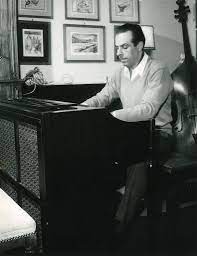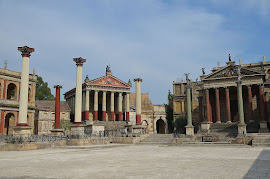‘Body on the beach’ mystery that sparked a national scandal
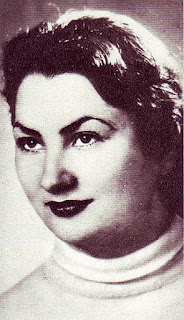 |
| Wilma Montesi was only 21 when she died |
Raised in the Trieste-Salario neighbourhood, little more than a couple of kilometres from central Rome, she was a 21-year-old woman who dreamed of becoming an actress but whose ambitions were known to no one outside her own family and friends until she disappeared from her home in Via Tagliamento on the afternoon of April 9, 1953.
Two days afterwards, her semi-naked body was found on the beach at Torvaianica, some 40km (25 miles) south of the capital. The mystery surrounding her death sparked four years of police investigations and conspiracy theories and the resignation of a senior member of prime minister Mario Scelba’s government.
On the afternoon of her disappearance, Montesi had declined an invitation to go to the cinema with her mother and sister, saying she would go for a walk instead. After she failed to return in time for supper, her family noticed that her ID papers and some jewellery, a gift from her policeman boyfriend that she always wore, were still in her room.
The details of what happened between her saying goodbye to her mother and sister and her body being found, face down and partially submerged, were never fully established. Although it was eventually proved that she was killed, no one was convicted.
The initial investigation suggested Montesi had taken a train from Rome to the popular seaside resort of Ostia but no witnesses reported seeing her in Torvaianica, 20km (12 miles) further down the coast.
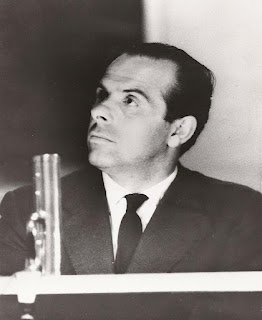 |
| The musician Piero Piccioni was charged with manslaughter but acquitted |
The theory of investigating officers was that she had stepped into the sea to relieve some soreness to her heels caused by a new pair of shoes but had fallen and passed out, probably through fainting. They suggested that her body had been moved by the currents and washed ashore.
What they could not explain was why she might have thought it necessary to remove not only her shoes and stockings but her skirt and suspender belt if her purpose was to bathe her feet. None of the missing clothing had been found.
The case was declared closed, yet the media, naturally intrigued by a mystery, would not let it drop. It turned into the beginnings of a scandal when a magazine ran a story that a young man who had handed in the missing garments at a police station was Piero Piccioni, a jazz musician and composer whose father was the Christian Democrat politician, Attilio Piccioni, the deputy prime minister and foreign minister under Scelba.
Faced with being sued by Piccioni, the author of the story eventually recanted his claim, agreeing to make a donation to charity in return for Piccioni dropping his libel action.
But six months after Wilma’s death, the story resurfaced when a reporter who had been investigating drug-trafficking along the coast near Rome claimed he had found evidence linking the young woman to an estate at Capocotta, a short distance from Torvaianica, that was owned by a wealthy Sicilian marquess, Ugo Montagna, a well-known figure in Rome society and a close friend of Piero Piccioni.
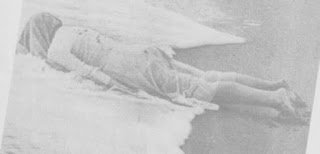 |
| Wilma Montesi's body as it was found, face down on the beach at Torvaianica |
The journalist making this new allegation was arrested and charged with ‘spreading false and tendentious news to disturb public order’ and it was at his subsequent trial that what had been merely a series of salacious stories blew into something bigger.
One of the witnesses, an actress called Anna Maria Caglio who was a former mistress of Montagna, claimed in court that Montagna was a drug dealer and that a number of women had been murdered, casting Piccioni as the killer. She also alleged that Saverio Polito, the Rome chief of police who had closed the Montesi case, was part of a cover-up.
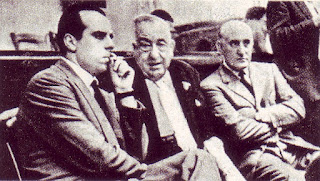 |
| Piero Piccioni, Saverio Polito and Ugo Montagna pictured during their trial in Venice in 1957 |
Wilma Montesi’s body was exhumed and a pathologist found that she had drowned but also concluded that she had struggled against an assailant who held her head under the water. Piccioni was charged with manslaughter and Montagna with being complicit. Polito, Caglio and others were charged with obstruction of justice.
However, despite investigators compiling a vast volume of evidence over three years, a trial in Venice in 1957 was not able to convict anyone apart from Caglio, who was given a suspended sentence. Piccioni, Montagna and Polito were acquitted, and the ‘body on the beach’ mystery remained unsolved.
Montesi is buried at the Verano Monumental Cemetery in Rome. It is believed by some that Federico Fellini's classic film La dolce vita was in part inspired by the Montesi story.
 |
| Gino Coppedè's Villino delle Fate, a building with fairytale qualities in the Coppedè district |
The Via Tagliamento, where Wilma Montesi was born, falls within the elegant Trieste-Salario district of Rome, book-ended by Piazza Buenos Aires, close to the Borghese gardens, and Via Chiana. The area, which developed in the 1920s, was originally known as the Quartiere Savoia. A highlight of the area is the Coppedè district, a few steps from Piazza Buenos Aires along the Via Dora. This complex of buildings described as a "pastiche" of architectural styles was built between 1915 and 1927 by the architect Gino Coppedè. Fanning out from around Piazza Mincio, with its enchanting Fontana delle Rane (Fountain of the Frogs), it includes buildings such as the Palazzina del Ragno and the Villino delle Fate that resemble those imagined in fairytales.
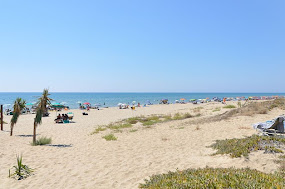 |
| Torvaianica, on the coast of Lazio south of Rome, has a broad expanse of beach |
Torvaianica, a coastal town of 12,700 residents occupying an 8km (5 miles) stretch of coastline, had a place in history long before the Montesi scandal. According to Vergil's Aeneid, the Trojan hero Aeneas landed there, a story that was confirmed after the excavation of the ancient Roman town of Lavinium. Torvaianica takes its name from a coastal watch tower, Torre del Vajanico, built in 1580 to repel Barbary pirates. The tower, damaged during World War II, was demolished during the 1960s. The town itself had been founded in the 1940s, after the draining of the nearby Pontine Marshes. Originally a fishing village, it is now a tourist resort.
Stay in Torvaianica with Booking.com
Also on this day:
1702: The birth of architect Giovanni Battista Vaccarini
1757: The birth of eye surgeon Giuseppe Forlenza
1857: The birth of sculptor Giuseppe Moretti
1869: The birth of opera impresario Giulio Gatti-Casazza
(Picture credits: Piero Piccioni by CharlieFoxtrot66; Villino del Fate by The Doc; Torvaianica beach by RaeBo; all via Wikimedia Commons)

